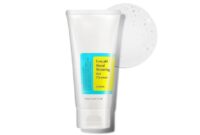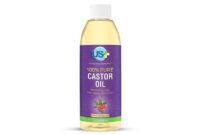Are you suffering from the itch and irritation of poison ivy? It can be a frustrating and uncomfortable experience, but fortunately, there are many products available to provide relief.
With so many options on the market, it can be overwhelming to choose the best one for you. That’s where we come in – we’ve compiled a list of the best products for poison ivy to help you find the relief you need.
Whether you prefer creams, sprays, soaps, natural remedies, or prescription medications, we’ve got you covered. We understand that everyone’s skin is different, and what works for one person may not work for another.
That’s why we’ve included a variety of options to suit different needs and preferences. So, sit back, relax, and read on to discover the best product for poison ivy that will provide you with the relief you need to get back to feeling like yourself again.
Creams and Ointments for Topical Relief
You’ll want to grab some creams or ointments to soothe your poison ivy rash and relieve the itching. These products can provide immediate relief and help prevent further irritation.
One popular option is calamine lotion, which contains zinc oxide and can help dry out the rash. Another option is hydrocortisone cream, which contains a steroid that can reduce inflammation and itching.
If you prefer natural remedies, there are herbal remedies and home remedies that can also provide relief. Aloe vera gel is a soothing option that can help reduce inflammation and itching. Tea tree oil is another option with anti-inflammatory properties. You can mix a few drops of tea tree oil with a carrier oil, such as coconut oil, and apply it to the affected area.
Keep in mind that not all remedies work for everyone, so it may take some trial and error to find the best product for your poison ivy rash.
Sprays for Easy Application
When it comes to dealing with that pesky poison ivy rash, using a spray can be a quick and easy solution for relief.
Spray alternatives include calamine lotion sprays and hydrocortisone sprays. These sprays are designed to be applied directly to the affected area, providing fast relief from the itching and irritation caused by poison ivy.
Not only are sprays easy to apply, but they can also be very effective in treating poison ivy rashes. The spray can penetrate the skin quickly, providing relief to the affected area without leaving a greasy residue.
And, because they are applied directly to the rash, sprays can be very targeted in their approach, helping to reduce the risk of spreading the rash to other parts of the body.
So, if you’re looking for a quick and easy solution to your poison ivy woes, consider trying a spray for relief.
Soaps for Preventative Measures
If you want to avoid getting a rash from plants like poison ivy, using a soap specifically designed for preventative measures can be a smart choice. These soaps are formulated with essential oils that act as a natural barrier against the toxic oil found in poison ivy, oak, and sumac. By using a preventative soap before exposure to these plants, you can significantly reduce your risk of developing a rash.
Aside from using commercial soaps, there are also several home remedies that can help prevent poison ivy rashes. For example, you can make your own soap by mixing essential oils like tea tree, lavender, and peppermint with a mild soap base. You can also try washing with apple cider vinegar or rubbing alcohol to remove any traces of the plant oil from your skin. However, it’s important to note that these remedies may not be as effective as commercial soaps and should be used with caution.
Natural Remedies for a Chemical-Free Option
Experience the soothing relief of nature with these chemical-free remedies for preventing and treating rashes caused by contact with poisonous plants. If you’re looking for a more natural approach to treating poison ivy, there are several herbal solutions and home remedies that can help alleviate the symptoms.
One of the most effective remedies is a poultice made from crushed jewelweed leaves. This plant is known for its anti-inflammatory properties, and can help reduce the itching and swelling associated with poison ivy. Simply crush the leaves and apply the paste to the affected area for relief.
Another natural remedy for poison ivy is a mixture of baking soda and water. This is a simple and effective way to reduce the itching and inflammation caused by the rash. Mix equal parts baking soda and water to form a paste, and apply it to the affected area. Let it sit for a few minutes before rinsing it off with cool water.
These chemical-free remedies are gentle on the skin and can be a great alternative to over-the-counter treatments. Give them a try and see how nature can help soothe your poison ivy rash.
Prescription Medications for Severe Cases
For severe cases of rash caused by contact with poisonous plants, you may need to visit a healthcare provider who can prescribe medications to help alleviate the symptoms.
Oral steroids are a common treatment for severe poison ivy cases. They work by reducing inflammation and suppressing the immune system’s response to the allergen. However, they can have side effects such as increased risk of infection, weight gain, and mood changes.
Your healthcare provider will determine the appropriate dosage and duration of treatment based on the severity of your symptoms.
In some cases, immunosuppressant drugs may be prescribed to treat severe poison ivy rashes. These drugs work by suppressing the immune system’s response to the allergen. However, they can have serious side effects and are typically reserved for cases where other treatments have failed.
Your healthcare provider will carefully consider the risks and benefits before prescribing these medications. It’s important to follow your healthcare provider’s instructions closely and report any side effects or concerns.
Frequently Asked Questions
How long does it usually take for poison ivy rash to go away?
You’re probably feeling pretty miserable right now, wondering how long this poison ivy rash is going to stick around. Unfortunately, there’s no hard and fast answer to that question – it can vary from person to person and even from one outbreak to the next.
However, most people find that their rash lasts anywhere from 1 to 3 weeks. The good news is that there are plenty of effective treatments for poison ivy that can help ease your discomfort and speed up the healing process.
Over-the-counter creams and ointments can help soothe the itching and reduce inflammation, while oral antihistamines can help with the itching as well as any accompanying allergies. If your rash is particularly severe or widespread, your doctor may prescribe a steroid cream or oral steroids to speed up healing.
Regardless of which treatment you choose, make sure to keep the affected area clean and dry, avoid scratching as much as possible, and try to resist the urge to cover it up with clothing as this can trap moisture and make the rash worse. With a little patience and some TLC, your skin will be back to normal before you know it.
Can poison ivy rash spread to other parts of the body?
If you have a poison ivy rash, it’s important to take steps to prevent it from spreading to other parts of your body.
One way to do this is to avoid scratching or touching the affected area, as this can spread the rash to other areas.
You can also try using a cold compress or taking an oatmeal bath to soothe the itching and reduce inflammation.
In terms of treatment options, there are a variety of over-the-counter creams and ointments that can help to relieve the symptoms of a poison ivy rash, such as calamine lotion or hydrocortisone cream.
However, if your rash is severe or does not improve with at-home treatment, it’s important to seek medical attention from a healthcare professional.
Is it safe to scratch a poison ivy rash?
Did you know that scratching a poison ivy rash can actually make it worse? In fact, studies show that scratching can cause the rash to spread to other areas of the body, making the healing process even longer.
It’s important to resist the urge to scratch, even though it may be difficult. Instead, try using a healing cream specifically designed for poison ivy, which can help soothe the itch and speed up the healing process.
There are many options available on the market, so be sure to do your research and find the best one for you. Remember, while scratching may provide temporary relief, it ultimately prolongs the healing process and can even lead to infection.
Are there any home remedies that can make poison ivy rash worse?
When it comes to home remedies for poison ivy, it’s important to be cautious as some can actually make the rash worse.
For example, applying hot water or vinegar to the affected area can cause further irritation and damage to the skin.
Instead, it’s recommended to try soothing remedies such as cool compresses, oatmeal baths, or aloe vera gel.
However, it’s important to note that while these remedies may provide some relief, they may not be as effective as medical treatments such as topical steroids or oral antihistamines.
It’s also important to take precautions to prevent further exposure to the plant and to seek medical attention if the rash is severe or accompanied by symptoms such as fever or difficulty breathing.
In some cases, alternative treatments such as herbal remedies or acupuncture may also be considered, but it’s important to consult with a healthcare professional before trying any new treatment.
Can poison ivy rash cause any long-term health problems?
If left untreated, poison ivy rash can potentially lead to complications such as infection, scarring, and hyperpigmentation. However, with proper treatment options, these risks can be minimized.
The first step in treating poison ivy is to wash the affected area with soap and water as soon as possible. Calamine lotion or hydrocortisone cream can also help to alleviate symptoms such as itching and redness. In severe cases, a doctor may prescribe oral steroids to reduce inflammation.
While there are no long-term health problems associated with poison ivy rash, it’s important to seek treatment to avoid potential complications.
Conclusion
So there you have it, friend! You now know the best products for poison ivy relief.
With creams and ointments, you can soothe your skin and reduce inflammation. Sprays make application easy and convenient. Soaps can help prevent future outbreaks. And if you’re looking for a natural option, there are plenty of remedies available.
Think of it like having a toolbox. Each product serves a different purpose, but they all work together to provide you with the relief you need.
So go ahead and stock up on these products, and be prepared for any future encounters with poison ivy. Your skin will thank you!


